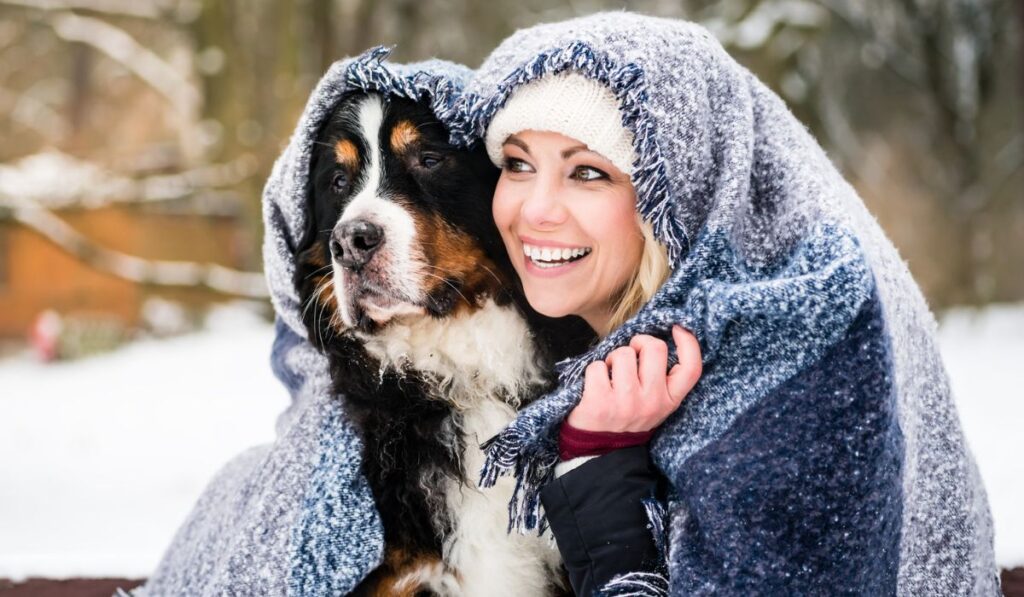As you start shivering and your teeth start to chatter, you’ll instantly know that your body is cold and you need to warm it up. But why do your teeth chatter when it’s cold, and should you be concerned that the constant chattering will damage your teeth?
Chattering teeth are part of your body’s natural reaction to the cold. Your body will start to shiver, and this will cause your teeth to chatter and generate heat. However, extreme stress or anxiety may also cause your teeth to chatter. This is different from grinding your teeth, or bruxism.
But does chattering damage your teeth? And how do you know whether the chattering is caused by the cold or stress? Let’s explore the answers to these questions and the science behind why your teeth chatter.
What Causes Our Teeth to Chatter in the Cold?

In cold conditions, teeth chattering will almost always accompany shivering. When your body’s temperature drops due to the cold, your brain sends a signal to your muscles, and you’ll start shivering. When you shiver, your teeth will chatter, which generates heat to warm your body.
While your brain does send signals to your teeth to shiver like the rest of your body, it’s the shivering motion that causes your teeth to bump together. This is an involuntary motion and your brain’s psychological reaction to the cold.
If you voluntarily grind your teeth due to the cold or as a habit, it’s not considered chattering. In most cases, the chattering will stop when your body becomes warm and you stop shivering.
Can Stress and Anxiety Cause Chattering Teeth?
While your teeth will mostly chatter when it’s cold, chattering can also be caused by stress or anxiety. When you are under extreme mental stress or are in an anxious situation, your body may start shivering, and your teeth may chatter. In some cases, you may even get a cold sweat due to stress.
However, your teeth will only chatter if your body is placed under extreme stress, such as when you have a panic attack. If your teeth chatter because of stress or anxiety, there’s no need to worry as it’s your body’s way of coping with the extreme situation.
A sudden drop in temperature is also a type of stress on the body. You’ll notice that your body will react similarly when you’re anxious and when it’s cold. So, if your teeth chatter, you start shivering, and you get goosebumps, it’s not always due to the cold!
Can Teeth Chattering Damage Your Teeth?
Normally, occasional chattering because of the cold won’t hurt your teeth. However, if your teeth are always chattering or you have a habit of grinding your teeth, it can wear away the tooth enamel and damage your teeth.
While chattering is involuntary and shouldn’t cause your teeth to grind against each other, teeth grinding is a bigger problem. Many people will involuntarily grind their teeth during sleep or even when they’re awake. This condition is called “bruxism” and is common amongst people of all ages.
If you suffer from constant chattering or bruxism and it’s causing damage to your teeth, visit a dentist for recommendations. Your dentist will look at the extent of the damage and check whether you need a fluoride treatment to strengthen the tooth enamel.
When a teeth-grinding habit gets out of control, you’ll have to look at the underlying reasons why it’s happening. In most cases, sleeping when you’re stressed out will cause you to involuntarily grind your teeth. Try drinking some warm green tea to calm your body before sleeping, or wear a mouthguard to protect your teeth.
Does Shivering Help Us Stay Warm?

While most people see shivering as a sign that their body is cold, shivering is actually your body’s way of keeping warm. When your body temperature drops, your brain will activate the muscles in your body, and you’ll start shivering involuntarily. This will generate heat and help your body temperature remain stable.
Thinner people and those with slower metabolisms are more likely to shiver when it’s cold. If you start shivering, put on some warm clothes, get yourself into a warm room, or even jog for a few minutes to increase your body’s temperature.


